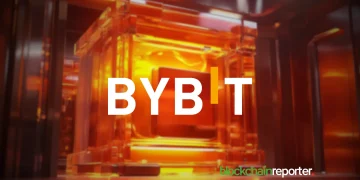Source: Unsplash
Blockchain technology has taken the world by storm. Initially created to support cryptocurrencies, it has grown to become a revolutionary technology that has transformed the way we think about data management and security. Its potential for various applications in diverse sectors makes it a vital tool in the digital age.
What is Blockchain
Blockchain is a decentralized digital ledger that records transactions in a transparent and secure manner. It works by creating blocks that contain data related to a particular transaction. When a transaction occurs, it is verified by a network of computers, also known as nodes. Once the transaction is validated, it is added to a block that is then added to the existing blockchain. The block is then cryptographically secured, and its contents cannot be altered or deleted.
Each block contains a unique code, known as a hash, that links it to the previous block in the chain. This process ensures that the blocks are in chronological order, and any attempts to alter a block would invalidate the hash code and break the chain. Therefore, blockchain technology is considered to be secure and tamper-proof.
Applications of Blockchain Technology
Blockchain technology has applications in various sectors, including finance, healthcare, supply chain management, and voting systems. Its ability to offer transparency, security, and decentralization makes it suitable for diverse applications.
Cryptocurrencies
Source: YouTube
Cryptocurrencies are perhaps the most well-known applications of blockchain technology. Cryptocurrencies are digital or virtual tokens that use cryptography to secure and verify transactions. They are decentralized, meaning that they operate without a central authority or intermediary, making them immune to government manipulation or interference.
Bitcoin and Ethereum are the most well-known cryptocurrencies, but there are thousands of others available. Cryptocurrencies have the potential to revolutionize the way we conduct financial transactions, by enabling fast, secure, and low-cost transactions.
Smart contracts
Smart contracts are self-executing contracts that are programmed to automatically trigger when specific conditions are met. They are a new and innovative way of conducting transactions, eliminating the need for intermediaries such as lawyers or banks.
Smart contracts are highly versatile and can be programmed to perform a wide range of tasks, such as releasing funds when a project is completed, or automatically renewing subscriptions. They have numerous applications in industries such as finance, real estate, insurance, and supply chain management.
Supply Chain Management
Source: iStock
Supply Chain Management can benefit from blockchain technology as it can provide end-to-end visibility and traceability, enabling greater transparency and reducing fraud. By tracking the movement of goods on a blockchain, stakeholders can monitor the status of shipments in real-time, reducing the risk of delays and increasing efficiency. This can also help to prevent counterfeit goods from entering the supply chain, ensuring that only authentic products are sold to consumers.
Voting Systems
Voting Systems can also benefit from blockchain technology by creating secure and transparent voting systems, ensuring that only authorized individuals can vote, preventing voter fraud, and ensuring accurate counting.
The blockchain ledger provides an immutable record of votes, making it impossible to tamper with or alter the results. By increasing transparency and reducing the risk of manipulation, blockchain-based voting systems can increase trust in the democratic process and promote greater participation in elections.
Blockchain Poker
Source: iStock
Blockchain Poker is a new and exciting application of blockchain technology that provides a fair, transparent, and decentralized playing experience.
One of the main benefits of blockchain poker is that it eliminates the need for a central authority to manage games and player accounts. This means that there is no single point of failure or vulnerability, making it much more difficult for hackers or other bad actors to compromise the system. In addition, players can remain anonymous and have control over their own funds, reducing the risk of fraud and theft.
Blockchain poker also uses a cryptographic protocol to ensure that the cards are dealt randomly and fairly, with no possibility of manipulation. This provides players with a level of trust and confidence that is often lacking in traditional online poker sites. Each hand is recorded on the blockchain, making it possible to audit the game and verify that all players were dealt a fair hand.
Another advantage of blockchain poker is that it enables players to make transactions using cryptocurrency, which can offer increased anonymity and security. This is particularly appealing to players who may be concerned about the privacy and security of their personal information when playing online poker. Moreover, blockchain poker sites can offer faster and cheaper transactions than traditional online poker sites, as they do not require intermediaries such as banks.
Why You Should Care About Blockchain Technology
Blockchain technology has the potential to revolutionize the way we conduct business, manage data, and interact with each other. By providing increased transparency, security, and decentralization, it can transform various industries, making processes more efficient and secure. Whether you’re a business owner, investor, or consumer, staying up-to-date with the latest developments in this field is crucial. As technology continues to evolve, we can expect to see even more exciting applications in the future.























